The Bank of Canada held off hiking interest rates on Wednesday but said that the economy is now operating at full capacity, teeing up a rate increase for the bank’s next meeting in March.
Policy makers voted to keep the central bank’s key interest rate at 0.25 per cent, where it has been since the early days of the pandemic. At the same time, they withdrew their forward guidance for rate hikes and made it clear that emergency economic support is no longer necessary, indicating that the cost of borrowing will rise in the coming months.
“Looking ahead, the governing council expects interest rates will need to increase, with the timing and pace of those increases guided by the bank’s commitment to achieving the 2 per cent inflation target,” the bank said in its rate decision statement.
There had been considerable speculation ahead of Wednesday’s announcement that Governor Tiff Macklem and his team would take the opportunity to begin normalizing rates in the face of soaring inflation.
“Markets had essentially given the Bank a green light to start hiking but it opted not to,” wrote Capital Economics senior Canada economist Stephen Brown in a note to clients. “We assume that was due to concerns about the negative optics surrounding a rate hike while much of the country is still facing coronavirus restrictions.”
The central bank is on the cusp of a rate hike cycle, with the goal of tamping down demand in the economy and keeping expectations for future inflation anchored around its 2 per cent inflation target. The annual rate of inflation reached a three-decade high in December, and bank forecasters expect inflation to remain elevated for an extended period of time.
The latest projection, published Wednesday in the bank’s quarterly monetary policy report (MPR), shows consumer price index inflation averaging 4.2 per cent in 2022, revised up from the previous estimate of 3.4 per cent. Bank forecasters expect the rate of inflation to be around 3 per cent by the end of the year, and around 2.25 by the second half of 2023.
The strength and persistence of inflation caught central bankers around the world by surprise in recent months, forcing them to change their narrative about inflation and prepare to hike rates. The Bank of Canada said in December that it did not expect to raise rates until April at the earliest. On Wednesday, it dropped its forward guidance altogether.
“While COVID-19 continues to affect economic activity unevenly across sectors, the governing council judges that overall slack in the economy is absorbed, thus satisfying the condition outlined in the bank’s forward guidance on its policy interest rate,” the bank said.
The bank is expected to raise the cost of borrowing steadily throughout the year. Ahead of Wednesday’s decision, markets were pricing in six quarter point rate hikes in 2022, while most private sector economists predicted at least three rate hikes. Economists estimate that the policy rate needs to get up to around 2 per cent before the bank is in a position where it is neither stimulating nor holding back the economy.
Canadian bond yields dropped after the rate announcement, as investors moved back their expected start date for rate hikes.
“The announcement might be having some market participants rethinking their bets for an aggressive hiking cycle this year,” wrote Royce Mendes, Desjardins’ head of macro strategy, in a note to clients.
The coming rate hikes will be felt most immediately by homeowners with variable rate mortgages or home equity lines of credit. Homeowners with fixed-rate mortgages will see their monthly payments increase when they renew their mortgage.
While officials decided not to pull the trigger Wednesday, the bank’s MPR made it clear that the Canadian economy no longer needs the extraordinary level of monetary policy support provided throughout the pandemic.
Employment has rebounded from pandemic lows, with Canada adding around 885,000 jobs in 2021 and the unemployment rate falling to 5.9 per cent, just 0.3 per cent above the rate in February 2020.
Labour shortages are widespread and businesses are reporting major capacity constraints, with four in 10 saying that an inability to find workers is holding back their sales, according to a recent Bank of Canada survey of businesses. That’s feeding into plans to raise wages, with around 80 per cent of survey respondents saying they intend to raise wages at a faster pace over the next year than over the previous year.
The Omicron variant and related lockdown measures slowed the economy heading into 2022. But the bank said the impact of Omicron in Canada will likely be short-lived thanks to high vaccination rates and “the continuing adaptability of businesses and households.”
The bank expects a strong economic rebound after lockdown measures are lifted, although it revised down its GDP growth projections for the year to 4 per cent from 4.3 per cent.
The bank continues to place most of the blame for high inflation on rising energy prices and supply chain disruptions, which have pushed up the cost of goods dramatically. The MPR says that nearly 4 percentage points of inflation are tied to energy prices and prices for “components subject to supply constraints.”
The MPR made particular note of food price inflation, which has been driven by drought, labour shortages and higher energy costs. The bank warned that “food price inflation will be above its historical average over 2022.”
The bank ended its government bond buying program, known as quantitative easing, in November. It is now in what it calls the reinvestment phase, where it is only buying bonds to replace ones that it already owns which are maturing.
On Wednesday, it said that it will keep its holdings of Government of Canada bonds “roughly constant” at least until it begins to raise the policy interest rate.
“At that time, the Governing Council will consider exiting the reinvestment phase and reducing the size of its balance sheet by allowing roll-off of maturing Government of Canada bonds,” the bank said.
We have great relationships with mortgage brokers we work closely with to help get you the best rate for your situation. If you would like more information about how this can affect you contact me at [email protected] or 604-341-9937.
Information source: Global Mail- MARK RENDELL



